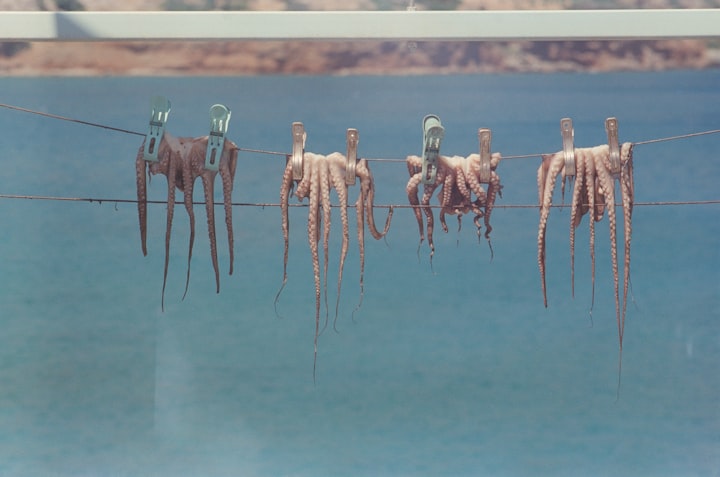
Crocodile
Crocodiles are one of the most fascinating creatures on the planet. These large, aquatic reptiles have been around for millions of years, and have a reputation for being dangerous and aggressive. While it's true that crocodiles can be deadly, there's much more to these ancient creatures than meets the eye.
Crocodiles belong to the family Crocodylidae, which includes alligators and caimans. There are 14 different species of crocodiles, found in parts of Africa, Asia, Australia, and the Americas. These species vary in size, with the smallest species, the dwarf crocodile, growing to just over 5 feet in length, and the largest species, the saltwater crocodile, reaching lengths of up to 23 feet and weighing over a ton.
One of the most striking features of crocodiles is their armored skin. This tough, scaly skin helps protect them from predators, as well as from the sun and water. The skin of a crocodile is covered in tiny, bony plates called osteoderms, which help to distribute the force of any impact, such as from a bite or a fall.
Crocodiles are cold-blooded animals, which means that their body temperature is regulated by their environment. They are also semi-aquatic, meaning that they spend a lot of their time in water, but also come onto land to bask in the sun and to nest.
Despite their fearsome reputation, crocodiles are actually quite intelligent animals. They are able to learn from experience, and have been known to use tools and to work together to hunt prey. Crocodiles are also excellent parents, with females carefully guarding their nests and hatchlings.
Crocodiles are carnivorous, and will eat just about anything they can catch, including fish, birds, and mammals. They are opportunistic hunters, and will often lie in wait for prey to come to them. Crocodiles are also known for their powerful jaws, which can exert a force of over 3,000 pounds per square inch. This means that they can easily crush the bones of their prey, as well as tear off large chunks of meat.
While crocodiles are certainly capable of being dangerous to humans, most attacks occur when humans encroach on the crocodile's territory. In many parts of the world, crocodiles are highly respected and even worshipped, with many cultures believing that they have spiritual or magical powers.
Despite their long history and importance in many cultures, crocodiles are facing a number of threats. Habitat loss and degradation, as well as hunting and poaching for their skin and meat, have all contributed to declines in crocodile populations in many parts of the world. Some species, such as the Philippine crocodile and the Siamese crocodile, are now critically endangered.
In recent years, conservation efforts have helped to protect and restore crocodile populations in some areas. For example, the American crocodile, which was once on the brink of extinction in the United States, has made a comeback thanks to conservation efforts. However, much more work is needed to ensure the survival of these ancient creatures.
In conclusion, crocodiles are a remarkable and ancient group of reptiles that have captured our fascination for centuries. Despite their reputation for being dangerous predators, they are also intelligent, adaptable, and play an important role in their ecosystems. However, they are facing numerous threats from habitat loss and degradation, hunting, and poaching, which have led to declines in populations of many species. It is essential that we continue to work towards protecting and conserving crocodiles, not only for their own sake, but also for the health and wellbeing of our planet. Through education, research, and conservation efforts, we can help to ensure that these incredible creatures continue to thrive for generations to come.
About the Creator
Enjoyed the story? Support the Creator.
Subscribe for free to receive all their stories in your feed. You could also pledge your support or give them a one-off tip, letting them know you appreciate their work.






Comments
There are no comments for this story
Be the first to respond and start the conversation.